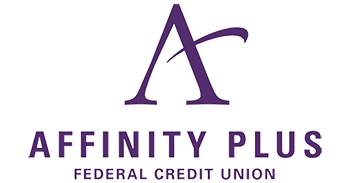Both credit unions and banks offer products and services that can help your small businesses, but you may find one preferable to the other depending on your business needs.
When deciding between a bank or credit union for small businesses, consider some of these factors:
Credit Union | Bank | |
|---|---|---|
Best for Businesses Seeking ... | Strong customer service focus, higher interest, and low monthly fees and loan rates | More physical branches and ATM networks, advanced online and mobile banking options, and a wider range of business banking products and services |
Membership Requirement | ✓ | ✕ |
Generally higher | ||
Monthly Fees | $0 to $20 | $0 to 40 |
Loan Rates | Typically lower as nonprofit institutions | |
Technology & Online Banking | Limited functions | More advanced |
Deposit Insurance | National Credit Union Administration (NCUA) | Federal Deposit Insurance Corporation (FDIC) |
Personal and Business Banking Products & Services | ||
Physical Locations for In-person Transactions & ATM Network Access | Fewer branches than traditional banks | More branches than credit unions |
Pro | Offers better rates on deposit accounts and loan products | Often has lower deposit rates and higher loan rates |
Con | Is more restrictive in its membership, with requirements ranging from a fee for joining to specific geographic or employment requirements | Is available to all customers |
When to Use Each
Credit Union
- You prefer fewer fees and higher interest rates on deposits: Credit unions allow business owners to save more by offering reduced fees and even fee-free services and products. They also offer one of the best ways to earn interest for your business by providing higher rates of interest on deposit accounts than banks.
- You have basic business banking needs and are satisfied with fewer physical branches: If you only need essential products and services, a credit union may be the best option for you. Compared to banks, credit unions don’t have a lot of physical branches available nationwide.
- You prioritize strong customer service: Credit unions offer more personalized customer service since members own them.
- You’re eligible for membership: If you live or own a business in a certain area or are part of an eligible organization, then you can apply as a member of a credit union.
Here are three of the best credit unions for small businesses:
Monthly Fee | Business Checking APY | Business Savings APY | Available to All Businesses? | Opening Balance Requirement | |
|---|---|---|---|---|---|
 | $0 or $15 | 0.05% or 0.10% | 0.10% | Yes | $10 |
Visit Affinity Plus Federal Credit Union
Affinity Plus is federally insured by the NCUA. Deposits are insured to at least $250,000.
| |||||
 | $0 to $20 | 0.01% to 0.45% | Varies | No
To become a member of Navy FCU, you must meet one of the following requirements: • Be an active service member, retired services member, or veteran • Be a family member of someone who qualifies as active duty, retired, or veteran of one of the branches of the armed forces • Be a member of the Department of Defense Civilian personnel
| $250 or $255 |
Visit Navy Federal Credit Union
Navy Federal Credit Union is federally insured by NCUA up to $250,000
| |||||
$0 | 0.20% | 0.10% | Yes | $5 deposit to a savings account to establish membership | |
Visit Bethpage Federal Credit Union
Federally insured by the NCUS up to $250,000. Membership subject to approval and membership requirements.
| |||||
Bank
- You need access to more physical branches and ATM networks nationwide: Traditional banks have brick-and-mortar branches in one or more states. They also have wider access to more ATM networks, making it convenient for their customers to perform transactions.
- You prefer a wide range of business banking products and services: A full-service bank offers various financial products and services, such as business checking and savings accounts, certificates of deposit, money market accounts, loans, credit cards, small business insurance, retirement plans, merchant services, treasury management products, and investments.
- You want to take advantage of advanced online and mobile banking options: Banks are equipped with great technology and offer a better online and mobile banking experience. If you don’t have a lot of cash transactions, consider opening an account with an online bank. A good starting point would be our guide to the best online business banks.
- You seek fewer restrictions for opening an account: Banks are inclusive and don’t require any membership so that may be a good choice when opening a business bank account.
Below are three of the best small business bank accounts:
Account Name | Monthly Fee | Free Monthly Transactions | APY | Geographic Availability | |
|---|---|---|---|---|---|
Business Essentials | None | Unlimited digital transactions and 25 free teller transactions | N/A | Branches in 26
Arizona, Arkansas, California, Colorado, Idaho, Illinois, Indiana, Iowa, Kansas, Kentucky, Minnesota, Missouri, Montana, Nebraska, Nevada, New Mexico, North Carolina, North Dakota, Ohio, Oregon, South Dakota, Tennessee, Utah, Washington, Wisconsin, and Wyoming.
states and available nationwide (online) | |
 | Business Checking | None | No limit | N/A | All states (online-only) |
Visit Relay
Relay is a financial technology company and is not a bank. Banking services provided by Thread Bank Member FDIC.
| |||||
Business Checking | None | No limit | N/A | All states (online-only) | |
Credit Union vs Bank for Small Business: Features Compared
Credit Union | Bank | |
|---|---|---|
OVERALL RATING | 4.2 out of 5★ | 4.1 out of 5★ |
Available Products | ★★★★ | ★★★★★ |
Monthly Fees | ★★★★ | ★★★ |
Deposit Insurance | ★★★★ | ★★★★ |
Network Availability | ★★★★ | ★★★★ |
Interest Rates | ★★★★ | ★★★★ |
Technology & Online Banking Experience | ★★★★★ | ★★★★★ |
Ownership/ Membership | ★★★★★ | ★★★★ |
Credit Union: 4 out of 5
Credit unions offer business savings and checking accounts, CDs, money market products, business loans, credit cards, investment, merchant services, and insurance services. However, some smaller credit unions for business may offer only basic business banking products and lack robust services available at bigger banks.
Bank: 5 out of 5
Most banks, including community banks, provide a wide variety of business savings and checking accounts. These include CDs, money market products, business loans, credit cards, retirement plans, merchant services, treasury management products, investments, and insurance services.
Credit Union: 4 out of 5
The monthly fees charged by credit unions range from $0 to $20. Many credit unions offer free checking accounts with no minimum balance requirements, but some charge fees for certain types of business checking accounts.
Bank: 3 out of 5
Meanwhile, banks can charge monthly fees ranging from $0 to $40. Since banks are structured to earn profits, they typically have more (and higher) fees in comparison to credit unions. However, some banks offer free business checking accounts.
See our list of the best free business checking accounts for more details.
Credit Union: 4 out of 5
Each credit union member is covered up to $250,000 by the NCUA.
Bank: 4 out of 5
Clients are covered by FDIC insurance up to $250,000.
Many banks can offer higher FDIC insurance coverage through a sweep network by partnering with additional banks. This allows deposits to be spread out across several financial institutions extending coverage from $250,001 to $150 million. Credit unions also have access to sweep networks, allowing NCUA coverage to be extended for higher deposits.
Credit Union: 4 out of 5
Credit unions have a limited number of branches available; however, most of them are part of a network that allows access to shared branches and ATMs nationwide.
Bank: 4 out of 5
Big traditional banks have several brick-and-mortar branches and large ATM networks available nationwide while online-only banks don’t have physical branches; though they offer access to the largest ATM networks.
Credit Union: 4 out of 5
Credit unions typically offer higher APYs on deposits and lower interest rates on loans since they’re nonprofit institutions.
Bank: 4 out of 5
Traditional banks generally offer lower APYs on deposits and higher interest rates on loans.
Online-only banks may offer higher deposit rates and lower loan rates since their operational expenses tend to be fewer than traditional banks. Check out our guide to the best online business banks for more information.
Credit Union: 5 out of 5
Credit unions have access to advanced technology and deliver a superb online banking experience with access to balance inquiries and transfers along with bill pay and peer-to-peer (P2P) money options.
Bank: 5 out of 5
Traditional banks and online-only banks have more advanced online and mobile platforms for small business than credit unions, especially bigger banks with higher budgets for technology. Both provide a superb online banking experience with more technical upgrades, functions, and features for online banking services.
Credit Union: 5 out of 5
Credit unions are owned by members and are nonprofit financial institutions. This gives them the ability to vote on policies of the credit unions and have a voice in decision-making, especially on big decisions that affect their financial well-being and growth.
Bank: 4 out of 5
Banks are governed by a board of directors and are not member owned. Therefore, customers at a bank are not given any amount of authority or decision-making. The guidelines on account management are set at the bank level based on profit and loss indicators of bank management.
Benefits & Drawbacks of a Credit Union vs Bank for Small Businesses
Credit Union | Bank | |
|---|---|---|
Benefits | Allows businesses to save more with fewer fees and even some fee-free accounts Has higher deposit interest rates, leading to robust savings for small businesses Offers strong customer service, focusing on serving your business needs | Provides businesses with more access to the physical branches of traditional banks, including ATM networks Offers businesses with various banking products and services, including loans and financial services Delivers convenience and doesn’t require business owners to sign up for membership |
Drawbacks | Has limited branches; your business should be located near one Requires business owners to be eligible for membership to open an account Offers limited selection of banking products and services for your business | Has reduced cost savings for businesses due to higher fees for banking products and services Provides smaller earnings on business funds than placing them at credit unions since interest rates on deposits are lower Has higher interest rate payments for business loans in contrast to credit unions |
Factors You Should Consider Before Choosing a Bank or Credit Union for Small Business
- Accessibility: Is your business located near a credit union or bank branch? Will you be needing in-person banking often?
- Financial products and services: What types of products and services fit your business needs?
- Fees: Do you use an ATM card often? If yes, check the ATM fees of the bank or credit union you’re choosing. Some don’t charge ATM fees, while others offer rebates.
- Interest rates: Are you looking to apply for loans? Loan interest rates are lower at credit unions than at banks. Are you seeking to earn higher APYs? Credit unions offer higher deposit interest rates but online banks also provide competitive rates.
- Membership requirements: Are you open to signing up as a member of a credit union or do you prefer the convenience of opening an account with a bank?
Key Statistics Comparing Banks vs Credit Unions
FDIC-insured Banks | NCUA-insured Credit Unions | |||
|---|---|---|---|---|
June 2023 | June 2024 | June 2023 | June 2024 | |
Number of Banks & Credit Unions | 4,645 | 4,539 | 4,686 | 4,533 |
Total Assets | $23,465,000,000 | $23,887,000,000 | $2,218,700,000 | $2,297,000,000 |
Total Loans | $12,299,000,000 | $12,543,000,000 | $1,561,700,000 | $1,617,700,000 |
Net Income Quarterly | $70,772,000,000 | $71,548,000,000 | $17,400,000,000 | $15,700,000,000 |
- The number of FDIC-insured banks in the second quarter of 2024 is now at 4,539, a slight decline from the previous year’s 4,645.
- Similar to banks, the number of NCUA-insured credit unions also declined from 4,686 in the second quarter of 2023 down to 4,533 in the same quarter of 2024.
- Total assets in FDIC-insured banks have increased by $426 billion.
- Total assets in NCUA-insured credit unions increased by $79 billion.
- Total loans in FDIC-insured banks increased by $244 billion.
- Total loans in NCUA-insured credit unions increased by $56 billion.
- Total net income of FDIC-insured banks has increased to $71.5 billion compared to the previous year’s second-quarter net income, a difference of $7 billion.
- Total net income of NCUA-insured credit unions has reduced to $15.7 billion in the second quarter of 2024 compared to the same period last year, a difference of $1.7 billion.
Sources: FDIC June 2024 Statistics and NCUA Data Summary Q2 2024
Frequently Asked Questions (FAQs)
Money in a bank is safer than in a credit union since banks offer sweep programs that allow you to insure your business funds beyond the FDIC limit of $250,000. However, if you’re mindful of the $250,000 FDIC and NCUA limit, your money would be equally protected in either a bank or a credit union.
With credit unions, business owners can obtain lower fees, high deposit interest rates, and lower interest rates on loans compared to banks. They also provide more personalized customer service to their members. Further, the members can benefit from easy loan approval and participate in policies and decision-making on how to run the credit union.
Credit unions offer limited convenience due to fewer ATM and branch networks and less advanced technology compared to banks, especially involving mobile banking. Also, their financial products and services aren’t as extensive compared to banks.
Banks aren’t necessarily better than credit unions. Both offer benefits and drawbacks so choosing one over the other depends on your business needs and what you value. You may want to consider different factors before deciding, such as accessibility, types of financial products and services offered, fees, interest rates, and membership requirements.
Selecting between the two will largely depend on the individual business circumstances. For businesses primarily needing online banking, the choice will be based on the business account that works best. Also, note that credit unions tend to have fewer branches; the location of your business may be the deciding factor based on convenience and branch accessibility.
There is not one specific account that works well for every business model. Choosing an account for your small business will be based on many factors. Startups may be searching for money-saving options, so introductory accounts with low fees will be a good option. Businesses with a high transaction volume may need higher-tier accounts with access to additional banking products.
Credit unions are member owned and operate as nonprofits, giving account holders a voice when it comes to operational decisions. They are entitled to vote for board of director members that will look out for their best interests. This generally results in money savings for account holders since the main goal is to serve the members instead of striving for profit margins.
Bottom Line
Which is better: a bank or credit union for small business owners? When deciding, it’s important to consider your business banking needs and priorities. You may want to go with a credit union if you are eligible for membership and prefer better customer service and a more intimate banking setup. If your priority is more advanced technology and a wide array of banking products and services, then working with a bank may be the better option.